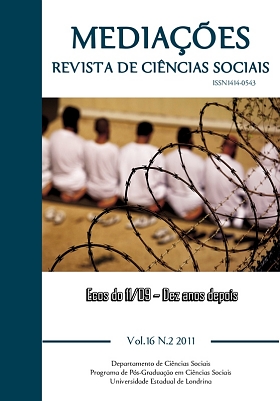Make a Submission
Developed By
Language
Information
Keywords
Most read in the last 90 days
-
577
-
402
-
358
-
328
-
263
Mediações - Revista de Ciências Sociais - eISSN 2176-6665
Universidade Estadual de Londrina
Programa de Pós-Graduação em Sociologia
Londrina -Paraná- Brasil
E-mail: mediacoes@uel.br
 Licença Creative Commons Attribution CC-BY 4.0 International
Licença Creative Commons Attribution CC-BY 4.0 International



























